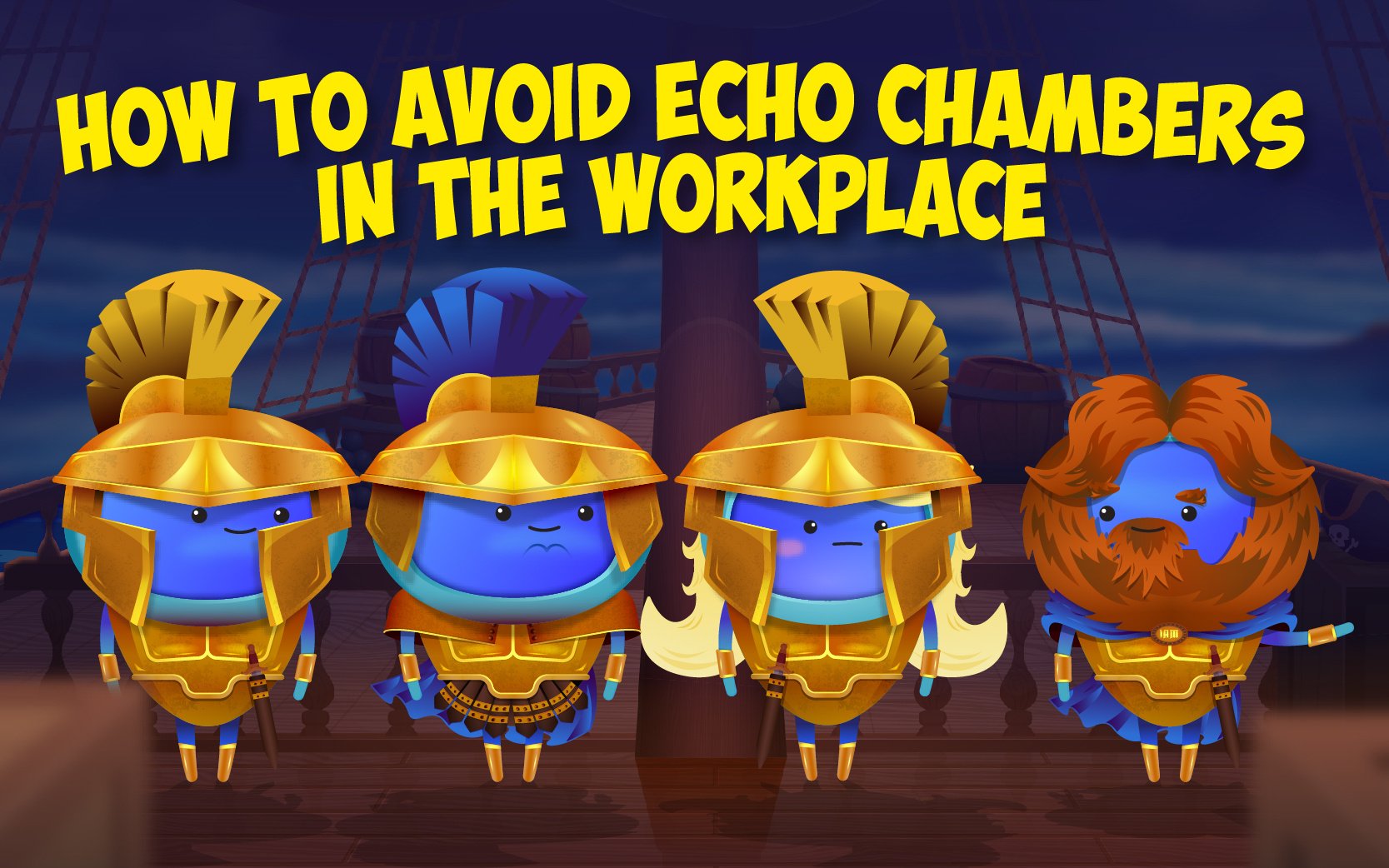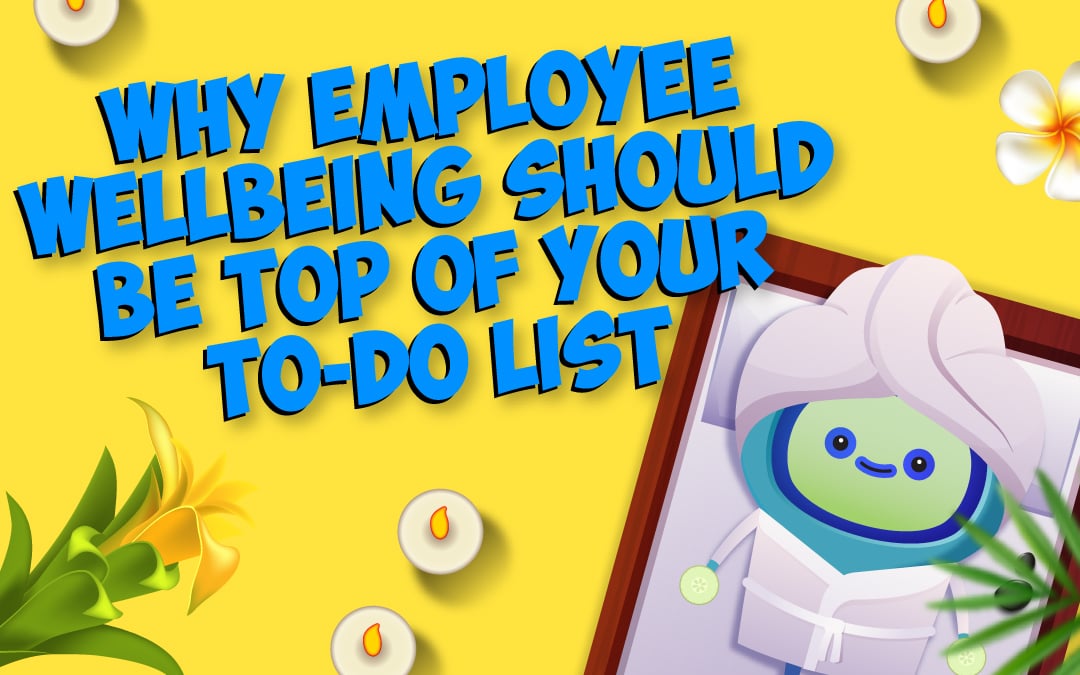“Hello?” (Hello, hello, hello…)
When you think of an ‘echo chamber’, you might be thinking of a large cave, with Indiana Jones staring into the darkness, his immediate surroundings illuminated gently by a flaming torch. Intimidating, maybe. But in reality, echo chambers can have much more of an effect.
It's easy to fall into the trap of surrounding ourselves with like-minded individuals who share our views and opinions. While this might seem comfortable, it can lead to the dangerous phenomenon known as an echo chamber. But what are echo chambers, and why should we be concerned about them in the workplace?
Echo chambers occur when ideas, beliefs, or information are reinforced through repetition within a closed system. In a work setting, this can happen when teams or departments become isolated, only interacting with those who share similar perspectives. The result? A workplace culture where innovation stagnates, critical thinking dwindles, and people don't feel safe to disagree.
Imagine you're working on a crucial project and need feedback. If you only collaborate with people who nod along to everything you say and never challenge your ideas, you'll likely end up with the same outcome you started with. No fresh perspectives, no creative solutions, just an echo of your original thoughts.
You’ve probably seen this happen in The Simpsons, with Mr. Burns’ group of nodding lackeys. We get it, though. An echo chamber is easy. It’s preferable to have people pretending to agree with everything we say rather than challenging us. And therein lies the problem, and we need to sort it out.
So, how can we avoid echo chambers and create a more dynamic, inclusive workplace culture? Let's have a look at some practical strategies that can help managers and leaders break free from this, well, limiting mindset.
Don't surround yourself with 'yes' people
It's tempting to hire people who think like us. After all, it's comfortable working with those who share our viewpoints and approaches. But that comfort comes at a cost. When we build teams full of 'yes' people, we create an environment where ideas go unchallenged, and the flaws in our thinking remain undetected.
Instead, aim to hire individuals who bring different & diverse perspectives to the table. Look for people who aren't afraid to respectfully disagree and who can offer alternative viewpoints. This doesn't mean seeking out people who just argue for the sake of it (and this is tricky because many people are like this!), but instead, individuals who can constructively challenge ideas and push the team to think differently.
To reiterate, don't just hire people with similar backgrounds to yours. Bring in someone with experience in a different industry or with a unique skill set. They might spot opportunities or potential downsides that others miss.
Encourage other people's ideas
Creating a workplace where everyone feels valued and heard is crucial for avoiding echo chambers. As a leader, it's your job to create an environment where team members feel safe sharing their thoughts, even if that upsets the balance a bit.
One effective approach is to ask for input from your team before sharing your ideas. This prevents your thoughts from influencing others and lets a wider range of perspectives emerge. When someone shares an idea, even if it seems impractical at first, thank them for their contribution. This positive reinforcement helps build confidence and encourages further input.
Remember, not all ideas will be winners, but by giving people the space to share their thoughts, you're creating that culture of innovation and creativity. Over time, team members will become more comfortable building on each other's ideas, leading to stronger solutions.
Challenge your beliefs
We have a natural tendency to seek out information that confirms our existing beliefs and ignore anything that contradicts them. This is known as confirmation bias, and it's a major contributor to echo chambers in the workplace.
As a leader, it's crucial to regularly question your ideas and assumptions. Make a conscious effort to seek out viewpoints that are different from yours. You could read articles or books from authors with different perspectives, attend conferences outside your usual field, or simply have lunch with colleagues from different departments.
By exposing yourself to diverse ideas, you'll develop a more well-rounded understanding of issues and be better equipped to make informed decisions. Plus, when your team sees you actively seeking out different viewpoints, they'll be more likely to do the same.
Create diverse teams
When forming teams or committees for projects, resist the urge to group people based solely on their similarities. Instead, aim for a mix of backgrounds, experiences, and skill sets. This diversity can lead to more creative problem-solving and innovative solutions.
For instance, if you're tackling a customer service issue, don't just involve the customer service team. Bring in someone from product development, marketing, and even finance. Each person will bring their unique perspective to the table, and the solution they create should solve the issue comprehensively.
Encourage healthy debate
Make it clear that respectful disagreement is allowed and actively encouraged here. Create opportunities for structured debates or discussions where team members can present different viewpoints on a topic.
You could even have fun with this. Perhaps create a 'devil's advocate' session, where someone is assigned to argue against the most common opinion. It might offer some interesting points that you hadn’t considered before. Or maybe implement a rule that before any major decision is made, three alternative options must be seriously considered.
Use anonymous feedback tools
Sometimes, people may hesitate to speak up in person, especially if their opinion goes against the grain. Implementing anonymous feedback tools can provide a safe space for team members to share their honest thoughts without fear of judgement or repercussions. A safe workplace culture will help with this, but while it’s being built, this is a good solution.
This could be as simple as an anonymous suggestion box or, if you want to splash out a bit more, create a digital platform that lets people comment anonymously and vote on ideas. The key is to create multiple channels for feedback and allow everyone to be heard.
Rotate roles and responsibilities
Echo chambers often form when people become too rooted in their roles. By regularly rotating responsibilities or creating cross-functional projects, you can help your team members gain new perspectives and challenge their existing assumptions.
For example, you might have your sales team spend a week working with customer support or have your developers shadow the marketing team. This cross-pollination of ideas can help create a fuller understanding of the business.
Bring in outside perspectives
You know the phrase “Couldn’t see the wood for the trees”? Sometimes, the best way to break out of an echo chamber is to introduce completely fresh viewpoints. Consider bringing in external consultants, industry experts, or even customers to provide input on key projects or decisions.
These outsiders can offer valuable insights that your team might be too close to the problem to see. They can also help challenge ingrained assumptions and shake up those established ways of thinking.
Celebrate diverse thinking
Finally, make sure to recognise and reward diverse thinking within your organisation. This doesn't mean you have to implement every off-the-wall idea, but you should at least acknowledge the value of those different perspectives.
Consider creating an award for the most innovative idea of the month or highlighting examples of how diverse thinking led to improved outcomes in team meetings. By celebrating these successes, you'll reinforce the importance of breaking out of echo chambers and encourage more people to speak up.
Avoiding echo chambers in the workplace is crucial for developing innovation, making better decisions, and creating a more inclusive culture. By implementing these strategies, you can create an environment where diverse ideas bloom and people feel safe to bring their unique perspectives to the table.
Remember, the goal isn't to create constant disagreement or conflict. It's about promoting a workplace where ideas are thoroughly examined, assumptions are regularly challenged, and the best solutions emerge through collaborative, diverse thinking.
By breaking free from echo chambers, you'll not only improve your workplace culture but also position your business to tackle complex challenges more effectively. This ability to harness diverse perspectives could be the key to staying ahead of the curve and achieving lasting success.
So, why not start today? Take a look around your workplace. Yes, even at the people who hide in the corner, actively avoiding confrontation – they might have some really good ideas but don’t want to speak up for fear of ‘rocking the boat’. Ask yourself: Are we truly hearing all the voices in the room? If not, it might be time to shake things up and start building a more open, inclusive, and innovative culture.
Avoid Echo Chambers with iAM Learning
If you're keen to know more about online learning, why not check out our unique, engaging eLearning content, covering everything from leadership and people management to health & safety and compliance?
Get in touch with us or try iAM Learning for yourself - get started today!



.png)
